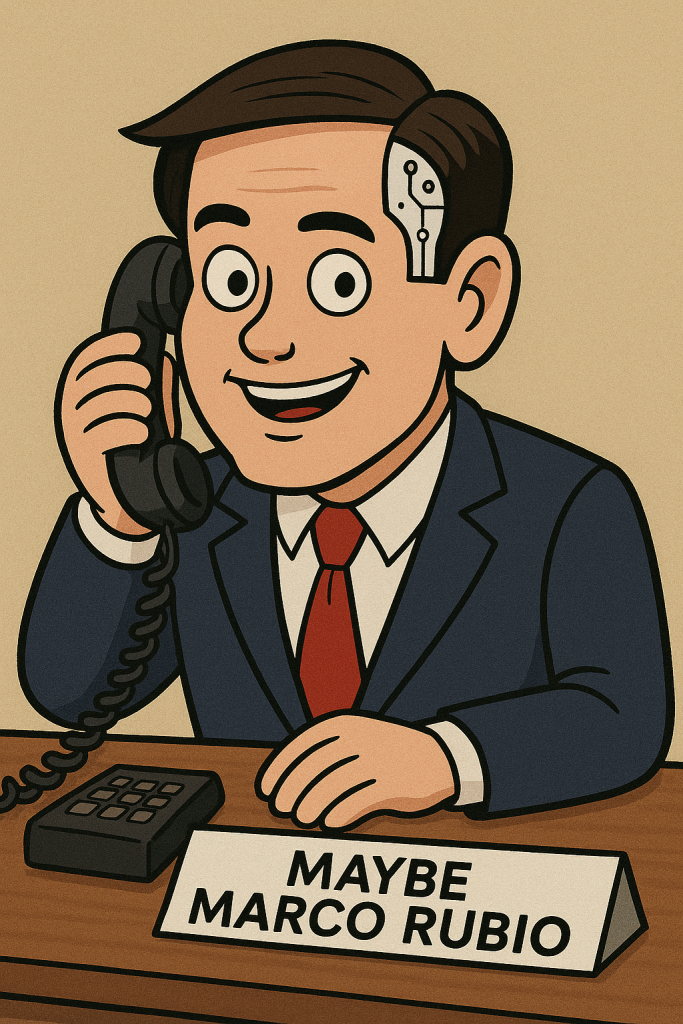Journalists, academics and pretty much everybody uses the terms “Trump”, “the Administration”, “Washington”, “the US” interchangeably when they talk and write about US policy. In fact, there are dozens, if not scores, of moving parts, players and political and personal interests behind any decision and action taken, whether it’s the bombing of Iran or when President Trump should visit the site of disastrous flooding in Kerr County, Texas.

Even in the best run administration it takes extraordinary discipline and carefully organized process to keep things from spinning out of control. The Trump administration has decided that process is for babies. The chaotic results are increasingly on display.
Over the last week, we learned that Secretary of Defense Pete Hegseth decided to suspend the delivery to Ukraine of critically needed weapons –including air defense munitions–without the knowledge of President Trump or his National Security Adviser/Secretary of State Marco Rubio. Hegseth acted after some of his advisers warned that US stockpiles were running low, even though analysts on the Joint Staff said our military readiness would not be harmed. When the news became public, the White House first defended the decision and then reversed it. (Trump was not pleased to be shown out of the loop. When a reporter asked him who was behind the cutoff, he snapped back, “I don’t know. Why don’t you tell me?”)
In Hegseth’s defense, a phrase you won’t hear often from me, it is nigh unto impossible to figure out what his boss wants on Ukraine. One day Trump is cutting off weapons and selling out to Moscow. The next day he is furious that Putin isn’t succumbing to his art of the deal. This week he is back on team Zelensky. We will see how long that lasts. Second, Hegseth has never run anything larger than a small nonprofit, which he ran into the ground. It’s no surprise that he is foundering. And-this is my key point–he is getting no support from the bureaucracy.
The National Security Council staff (shorthanded as the NSC, though that is actually another structure) is supposed to coordinate the “interagency process.” Its job is to ensure that officials responsible for Ukraine (or any) policy across the Executive Branch– at DOD, State, the Intelligence Community, Treasury, etc.–are talking to each other. When their bosses need to make a decision this interagency group-led by the NSC staff–is supposed to spring into action and provide facts, analysis and recommendations (from their “buildings'” unique perspectives) and then help implement whatever is decided. Decisions like cutting off critical weapons deliveries to an ally at war aren’t supposed to be taken unilaterally-or surprise anyone, least of all the President.
The problem is that this administration has decided that it doesn’t need a robust NSC. Even without DOGE, the NSC has been DOGE’d. In late May Rubio slashed the staff in half. These were regional experts, or experts on functional issues like terrorism or climate change. With offices next door to the White House, they could at a moments notice show up in the Oval Office to answer a policy or history question and then go back to their own office and ride herd on the massive national security bureaucracy-ensuring that the President had the best options when he needed to make a decision and that any decision he made was fully implemented. What President would want a staff like that?
When critics warned the NSC staff cuts could lead to chaos, the Trump team insisted that other administrations might need an NSC to referee among dueling agencies or develop bottom up policy recommendations. Not this one. Nothing but harmony here and the boss always knows what he wants. Was this Hegseth going rogue? There is no system to go rogue from.




